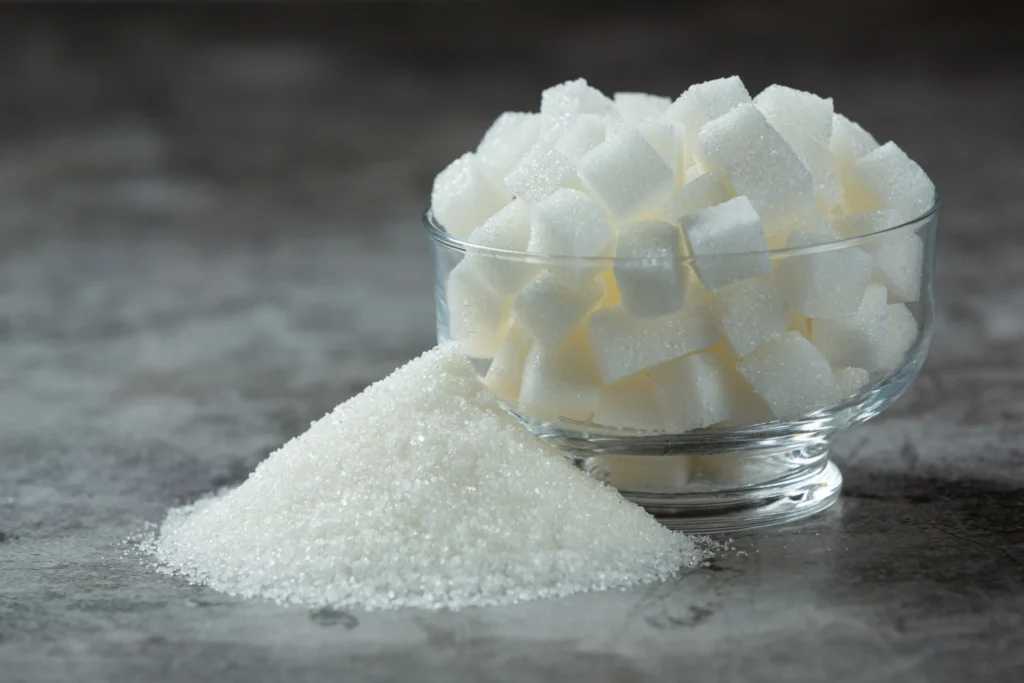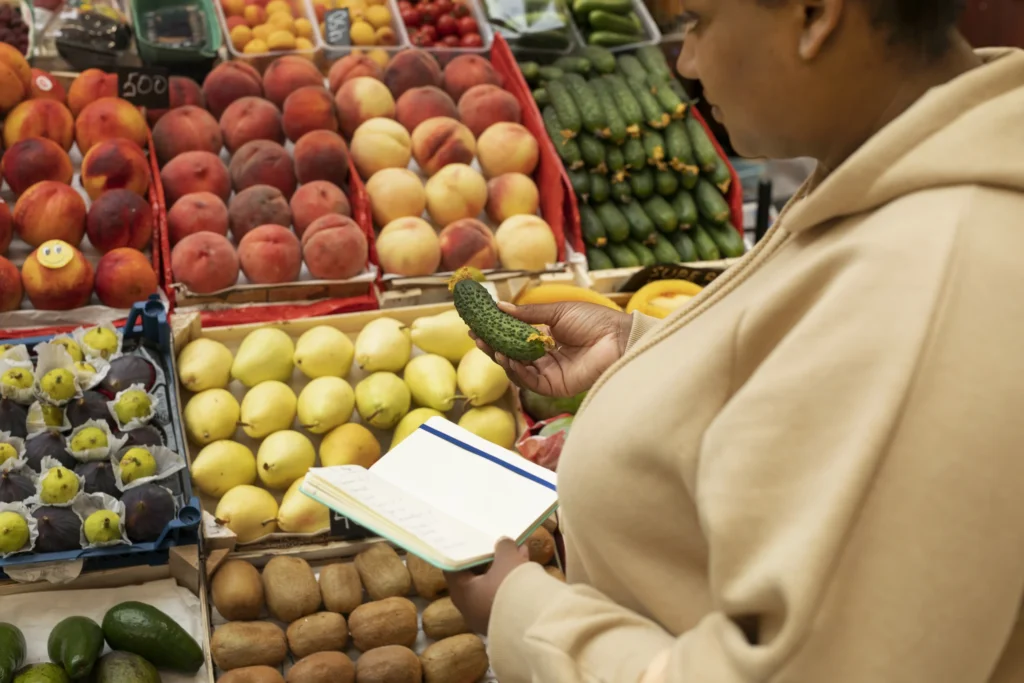
Sugar has become a staple in modern diets, showing up not only in sweets and sodas but also in seemingly healthy items like fruit juices, breakfast cereals, salad dressings, and even whole wheat bread. In Ghana and globally, many people consume 2 to 3 times the recommended daily amount of added sugars, often without realizing it.
According to the World Health Organization (WHO), adults should aim to limit their intake of added sugars to less than 10% of total energy intake, with a further reduction to below 5% (about 25 grams or 6 teaspoons per day) offering additional health benefits.
Why Is Sugar Harmful?
- Consuming excess added sugars is linked to a range of chronic health conditions:
- Weight Gain and Obesity: Sugary foods are calorie-dense but nutrient-poor, contributing to overeating and weight gain.
- Type 2 Diabetes: High sugar intake can impair insulin sensitivity and increase the risk of developing type 2 diabetes.
- Heart Disease: Excess sugar, especially from sugary drinks, is associated with higher triglyceride levels, inflammation, and elevated blood pressure—all risk factors for heart disease.
- Dental Decay: Sugar fuels the growth of harmful bacteria in the mouth, leading to cavities and gum disease.
- Fatty Liver Disease: High-fructose sugars, especially in sodas and juices, may lead to fat buildup in the liver.
Not All Sugars Are Created Equal – Or Are They?
White sugar vs Brown Sugar
Both white and brown sugar are derived from sugarcane or sugar beets. The key difference is that brown sugar retains some molasses, giving it a slightly higher mineral content (like calcium, potassium, iron). However, the nutritional differences are minimal. In terms of blood sugar impact and calories, they are nearly similar. Both should be consumed in moderation.
Is Honey Healthier Than Sugar or Just a Hype?
Honey is often viewed as a “natural” and healthier choice, but it still has high levels of glucose and fructose. One tablespoon of honey has around 17 grams of sugar and about 64 calories—more than white sugar per tablespoon. While honey has trace antioxidants and has some antimicrobial properties, these benefits don’t outweigh the health risks when consumed in large amounts.
Tip : Moderation is key. Even natural sugars can spike blood sugar levels and contribute to health issues if overused.
Sneaky Sources of Sugar
- Flavored yogurts
- Energy bars
- Tomato sauce
- Breakfast cereals
- Granola
- Bread and baked goods from local vendors
- Look for ingredients like high-fructose corn syrup, cane juice, maltose, dextrose, fructose, and sucrose—all of which are added sugars.
Smart Ways to Cut Back

- Sweeten porridge or smoothies with fresh fruit instead of sugar.
- Choose unsweetened versions of cereals and dairy products.
- Gradually reduce the sugar you add to tea, coffee, or koko.
- Experiment with spices like cinnamon or vanilla for natural flavor.
- Always read labels carefully before buying food.
Did you know?
Even 100% fruit juices can contain as much sugar as soda. One cup of orange juice has about 21 grams of sugar—nearly the same as a can of soda.
Final Thoughts
Sugar isn’t inherently evil, but in our modern food environment, it’s easy to consume far too much without realizing it. By becoming more mindful of your sugar intake and reading nutrition labels carefully, you can make smarter choices that protect your long-term health.
RD, LD Julius Sammah
MyHealthCop Certified Dietician
Ready to Take the First Step?
👉 Book a 1-on-1 Session with any of our Certified Dietitian professionals to start your health journey today. [DOWNLOAD THE APP]